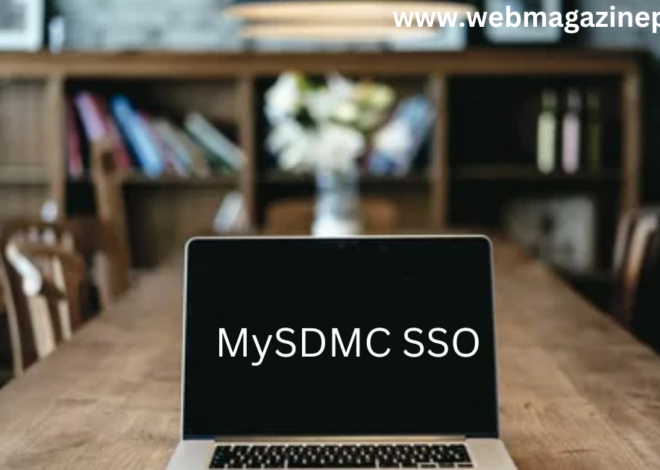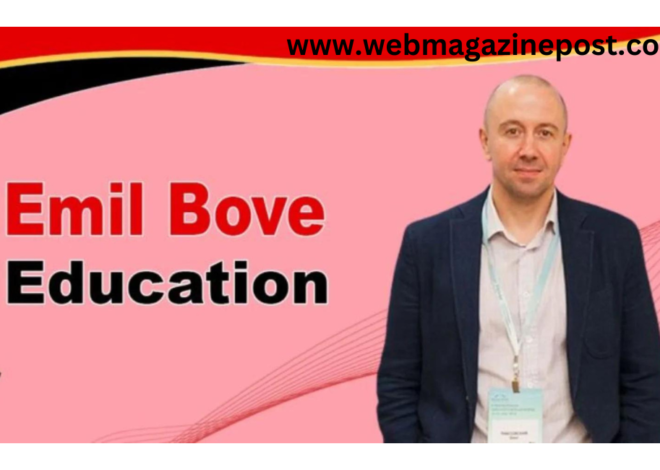
Graduate Education MST: 100% Ultimate Guide to Navigating of Unpacking the Benefits of Pursuing a Opportunities
Introduction to Graduate Education MST
Graduate Education MST is a significant step for many professionals seeking to advance their careers and enhance their expertise. Among the various graduate degrees available, the Master of Science in Teaching (MST) holds a unique position, especially for those passionate about education. But what exactly is an MST degree, and why should one consider pursuing it? Let’s dive in!
Understanding the MST Degree
The Graduate Education MST degree is a specialized graduate program designed for individuals who seek in-depth knowledge and expertise in taxation. This degree is particularly beneficial for professionals aiming to advance their careers in accounting, tax consulting, or financial planning.
Key Components of a Graduate Education MST Program
A Graduate Education MST program typically covers a broad range of topics related to taxation, including:
Federal Taxation: Detailed study of the U.S. federal tax system, including individual and corporate tax laws.
State and Local Taxation: Examination of tax laws and regulations at the state and local levels.
International Taxation: Focus on tax laws that affect international business transactions and cross-border activities.
Tax Research and Analysis: Training in conducting thorough tax research and applying tax laws to various scenarios.
Tax Policy and Ethics: Understanding the ethical considerations and policy implications of tax laws.
Benefits of Earning an MST Degree
Specialized Knowledge: A graduate Education MST degree provides specialized knowledge that is essential for navigating complex tax regulations and advising clients effectively.
Career Advancement: Graduates often find opportunities for career advancement in roles such as tax consultants, tax managers, and senior accountants.
Professional Credentials: Holding an MST degree can enhance professional credibility and may fulfill educational requirements for certain certifications, such as the Certified Public Accountant (CPA) designation.
Networking Opportunities: MST programs often provide opportunities to connect with industry professionals, faculty, and peers, fostering valuable professional relationships.
Career Opportunities with an MST Degree

Graduates with an MST degree can pursue various career paths, including:
Tax Consultant: Providing expert advice on tax planning and compliance to individuals and businesses.
Tax Manager: Overseeing tax reporting and compliance within an organization.
Corporate Tax Specialist: Handling corporate tax matters, including mergers and acquisitions, international tax, and transfer pricing.
IRS Agent: Working with the Internal Revenue Service to enforce tax laws and regulations.
Financial Planner: Offering tax-efficient financial planning advice to clients.
Choosing the Right MST Program
When selecting an MST program, consider the following factors:
Curriculum: Review the curriculum to ensure it covers the areas of taxation that are most relevant to your career goals.
Faculty Expertise: Look for programs with faculty who have significant experience and expertise in taxation.
Flexibility: Consider whether the program offers flexible scheduling options, such as part-time or online courses, to accommodate your professional and personal commitments.
Benefits of an MST Degree
Specialized Knowledge
An MST degree provides in-depth knowledge and understanding of complex tax laws and regulations. This specialized knowledge is crucial for professionals who need to navigate the intricacies of the tax system, whether for individuals, corporations, or international entities. Courses typically cover federal, state, and local taxation, as well as international tax issues, giving graduates a comprehensive foundation in all areas of taxation.
Career Advancement
Holding an MST degree can significantly enhance career prospects. It positions graduates for advanced roles within their organizations, such as tax managers, senior accountants, or directors of taxation. The degree demonstrates a high level of expertise and commitment to the field, making graduates attractive candidates for promotion and leadership positions.
Professional Credentials
Earning a Graduate Education MST degree can help fulfill the educational requirements for various professional certifications, such as the Certified Public Accountant (CPA) or Certified Tax Specialist (CTS) designation. These credentials are highly regarded in the industry and can further enhance career opportunities and professional credibility.
Increased Earning Potential
Professionals with an MST degree often command higher salaries than those without specialized tax education. The advanced knowledge and skills gained through the program make MST graduates valuable assets to their employers, justifying higher compensation for their expertise and contributions.
Enhanced Analytical Skills
An MST program emphasizes critical thinking and analytical skills, training students to perform thorough tax research and apply tax laws to complex scenarios. These skills are essential for identifying tax-saving opportunities, ensuring compliance, and providing strategic tax planning advice.
Networking Opportunities
Graduate Education MST programs often offer networking opportunities with peers, faculty, and industry professionals. These connections can lead to valuable relationships, mentorship, and career opportunities. Networking within the tax profession can provide insights into industry trends and best practices, further enhancing one’s professional development.
Ethical and Policy Understanding
Courses in tax policy and ethics help MST graduates understand the broader implications of tax laws and the importance of ethical conduct in the profession. This knowledge is crucial for making informed decisions that align with both legal requirements and ethical standards, protecting both the professionals and their clients.
MST Curriculum and Coursework
Overview of MST Curriculum
The Master of Science in Taxation (MST) program is designed to provide a comprehensive and in-depth understanding of tax law and its applications. The curriculum is structured to cover a broad range of topics essential for tax professionals, combining theoretical knowledge with practical skills. Below is an outline of the typical courses and subject areas included in an MST program.
Core Courses

Federal Taxation
Individual Taxation: Focuses on the tax laws affecting individuals, including income, deductions, credits, and filing requirements.
Corporate Taxation: Covers tax issues related to corporations, such as formation, operation, distributions, and liquidations.
Partnership Taxation: Examines the taxation of partnerships and their partners, including formation, operation, and dissolution.
State and Local Taxation
Multistate Taxation: Reviews the principles and issues related to taxation by multiple states, including nexus, apportionment, and allocation.
Local Tax Issues: Discusses the impact of local taxes on businesses and individuals, including property taxes and local income taxes.
International Taxation
Inbound and Outbound Transactions: Explores the tax implications of cross-border transactions, including income sourcing, foreign tax credits, and transfer pricing.
Tax Treaties: Analyzes the role of tax treaties in international taxation, focusing on their impact on tax liabilities and compliance.
Tax Research and Analysis
Research Methods: Teaches the methodologies for conducting thorough tax research using various resources, including tax codes, regulations, and case law.
Practical Applications: Emphasizes the application of research findings to real-world tax issues and client scenarios.
Tax Policy and Ethics
Tax Policy: Discusses the development and impact of tax policy, including legislative processes and economic implications.
Ethical Considerations: Covers the ethical standards and responsibilities of tax professionals, including issues of confidentiality, conflict of interest, and professional conduct.
Elective Courses
In addition to core courses, MST programs often offer a range of electives, allowing students to tailor their education to their specific interests and career goals. Examples of elective courses include:
Estate and Gift Taxation
Focuses on the taxation of estates and gifts, including planning strategies to minimize tax liabilities.
Taxation of Exempt Organizations
Examines the tax issues related to non-profit and tax-exempt organizations, including compliance and reporting requirements.
Advanced Corporate Taxation
Provides an in-depth analysis of complex corporate tax issues, including mergers and acquisitions, reorganizations, and consolidated returns.
Taxation of Financial Instruments
Explores the tax treatment of various financial instruments, such as stocks, bonds, options, and derivatives.
Admission Requirements
Educational Background
Bachelor’s Degree: While a degree in accounting, finance, or a related field is preferred, it is not always required. However, applicants with non-accounting degrees may need to complete prerequisite courses in accounting and taxation.
Prerequisite Courses: Some programs require specific undergraduate courses in accounting, economics, and business law. Common prerequisites include introductory courses in financial accounting, managerial accounting, and principles of taxation.
Academic Performance
GPA: Most Graduate Education MST programs require a minimum undergraduate GPA, typically around 3.0 on a 4.0 scale. Some programs may have higher GPA requirements or may consider the GPA in major-specific courses more heavily.
Standardized Tests
GMAT/GRE: Many Graduate Education MST programs require applicants to submit scores from the Graduate Management Admission Test (GMAT) or the Graduate Record Examinations (GRE). Some programs may waive this requirement for applicants with significant professional experience or a high undergraduate GPA.
Professional Experience
Work Experience: While not always mandatory, having relevant work experience in accounting, tax, or finance can strengthen an application. Some programs prefer applicants with one or more years of professional experience.
Letters of Recommendation
References: Applicants typically need to submit two to three letters of recommendation. These should be from academic professors, employers, or professional colleagues who can attest to the applicant’s academic abilities, work ethic, and potential for success in the program.
Personal Statement
Statement of Purpose: Applicants must submit a personal statement or statement of purpose. This document should outline the applicant’s career goals, reasons for pursuing a Graduate Education MST degree, and how the program aligns with their professional aspirations.
Resume or CV
Professional Resume: A current resume or curriculum vitae (CV) is usually required, detailing the applicant’s educational background, work experience, skills, and any relevant certifications or professional memberships.
Application Process

Step 1: Research Programs
Identify Programs: Research various Graduate Education MST programs to find those that best match your career goals, interests, and educational background.
Review Requirements: Carefully review each program’s admission requirements, curriculum, faculty, and tuition costs.
Step 2: Prepare Application Materials
Transcripts: Obtain official transcripts from all post-secondary institutions attended. These should be sent directly to the MST programs to which you are applying.
Standardized Test Scores: Register for and take the GMAT or GRE, if required. Request that your scores be sent directly to the MST programs.
Letters of Recommendation: Request letters of recommendation from professors, employers, or professional colleagues. Provide them with any necessary forms and guidelines for submission.
Personal Statement: Write a personal statement or statement of purpose. Be sure to address your career goals, reasons for pursuing an MST degree, and how the program aligns with your professional aspirations.
Resume or CV: Update your resume or curriculum vitae (CV) to include your educational background, work experience, skills, and any relevant certifications or professional memberships.
Step 3: Complete the Application
Online Application: Fill out the online application form for each MST program. This will typically include personal information, educational background, and work experience.
Application Fee: Pay the non-refundable application fee for each program. Fees vary by institution, so check each program’s website for specific amounts.
Upload Documents: Upload all required documents, such as transcripts, test scores, letters of recommendation, personal statement, and resume, through the online application portal.
Step 4: Submit the Application
Review: Double-check that all required materials have been uploaded and that your application is complete.
Submit: Submit your completed application by the deadline. Many programs have specific deadlines, so be sure to apply well in advance.
Step 5: Interview
Schedule Interview: If required, schedule and prepare for an interview.
Prepare: Prepare for the interview by reviewing your application materials, researching the program, and practicing common interview questions.
Cost and Financial Aid
Program Costs
Tuition: Tuition for an MST program varies widely depending on the institution, location, and whether the program is public or private. Tuition can range from $20,000 to $60,000 or more for the entire program.
Fees: Additional fees may include application fees, registration fees, technology fees, and other miscellaneous costs. These can add several hundred to a few thousand dollars to the total cost.
Books and Supplies: Plan for the cost of textbooks, course materials, and supplies. This can range from $500 to $1,500 per year.
Living Expenses: If you attend a full-time program, consider the cost of living, including housing, food, transportation, and personal expenses. These costs vary based on the location and individual lifestyle.
Financial Aid Options
Scholarships: Many institutions offer scholarships specifically for MST students. These may be based on academic merit, financial need, or other criteria. Research and apply for scholarships offered by the institution and external organizations.
Grants: Grants are typically need-based and do not need to be repaid. Federal and state governments, as well as private organizations, may offer grants to graduate students.
Assistantships: Some programs offer graduate assistantships, where students work part-time in teaching or research roles in exchange for a stipend and/or tuition waiver.
Employer Sponsorship: Some employers offer tuition assistance or reimbursement programs for employees pursuing advanced degrees related to their field. Check with your employer about potential sponsorship opportunities.
Student Loans: Federal and private student loans are available to help cover the cost of tuition and other expenses. Federal loans often offer lower interest rates and more flexible repayment options compared to private loans.
Federal Direct Unsubsidized Loans: Available to graduate students, these loans accrue interest while you are in school.
Federal PLUS Loans: Graduate PLUS Loans are available to cover any remaining costs not covered by other financial aid.
Work-Study Programs: Federal Work-Study programs provide part-time employment opportunities for students with financial needs, allowing them to earn money to help pay for education expenses.
Online vs. On-Campus MST Programs
Overview
Choosing between an online and on-campus Graduate Education MST in Taxation (MST) program depends on various factors, including personal preferences, career goals, and lifestyle. Both formats have their own set of advantages and challenges.
Online MST Programs
Advantages
Flexibility: Online programs offer the flexibility to study from anywhere, making it easier to balance work, family, and other commitments. Courses can often be accessed at any time, allowing students to study at their own pace.
Accessibility: Ideal for working professionals or those living in remote areas, online programs eliminate the need for commuting, making education more accessible.
Cost-Effective: Online programs can be more cost-effective, as they often have lower tuition rates and eliminate costs associated with commuting, housing, and on-campus fees.
Technology Integration: Online programs leverage advanced technology, providing students with a modern learning experience through interactive platforms, virtual classrooms, and digital resources.
Challenges
Self-Discipline: Online learning requires a high level of self-discipline and time management skills. Students must be proactive in keeping up with coursework and deadlines.
Limited Face-to-Face Interaction: Lack of in-person interaction can make it difficult to build relationships with peers and faculty, potentially limiting networking opportunities.
Technical Issues: Students must have reliable internet access and be comfortable using technology. Technical issues can sometimes disrupt learning.
On-Campus MST Programs
Advantages
In-Person Interaction: On-campus programs offer direct interaction with professors and classmates, fostering a collaborative learning environment and enhancing networking opportunities.
Structured Schedule: A structured schedule with set class times can help students stay organized and focused. Regular attendance can also promote better engagement and accountability.
Campus Resources: Students have access to campus facilities such as libraries, study centers, career services, and extracurricular activities, providing a more immersive educational experience.
Networking Opportunities: Being on campus allows for greater participation in events, workshops, and seminars, offering valuable opportunities for networking and professional growth.
Accreditation and Quality of MST Programs
Importance of Accreditation
Accreditation ensures that the Graduate Education MST program meets certain standards of quality and rigor. It is essential for the program to be recognized by reputable accrediting bodies to ensure the degree’s value and credibility.
How to Verify Accreditation
Prospective students can verify a program’s accreditation status through the U.S. Department of Education or the Council for Higher Education Accreditation (CHEA) websites.
Career Opportunities with an MST Degree
Teaching Positions
Graduates with a Graduate Education MST degree can pursue various teaching positions in K-12 schools, colleges, and universities. They are often considered for leadership roles within their institutions.
Administrative Roles
In addition to teaching, Graduate Education MST graduates can qualify for administrative roles such as department heads, curriculum coordinators, and education consultants.
Professional Development and Continuing Education
Workshops and Seminars
Continuing education is crucial for educators. Graduate Education MST graduates can benefit from attending workshops and seminars to stay updated with the latest teaching strategies and educational trends.
Advanced Certifications
Pursuing advanced certifications in specialized areas can further enhance an educator’s skills and career prospects.
Challenges of Pursuing a Graduate Education MST Degree
Time Management
Balancing the demands of a Graduate Education MST program with professional and personal responsibilities can be challenging. Effective time management skills are essential for success.
Balancing Work and Study
Many Graduate Education MST students are working professionals. Finding a balance between work, study, and personal life requires careful planning and support from family and employers.
Success Stories
Testimonials from MST Graduates
Hearing from successful Graduate Education MST can provide inspiration and insights for prospective students. Many graduates share how the degree has positively impacted their careers and personal growth.
Notable Alumni
Highlighting notable alumni who have made significant contributions to education can showcase the potential of a Graduate Education MST degree.
Tips for Prospective MST Students
How to Succeed in an MST Program
Prospective Graduate Education MST students should stay organized, seek support when needed, and remain committed to their studies. Building a strong network with peers and faculty can also be beneficial.
Resources for Support
Many institutions offer resources such as tutoring, career services, and counseling to help students succeed. Utilizing these resources can enhance the educational experience.
Conclusion
In summary, the Graduate Education MST is a valuable degree for educators looking to advance their careers and improve their teaching skills. With various program options, financial aid opportunities, and career benefits, pursuing a Graduate Education MST can be a rewarding decision. Whether you choose an online or on-campus program, the key is to stay focused, seek support, and take advantage of all the resources available.
FAQs
What is the primary focus of a Graduate Education MST degree?
The Graduate Education MST degree primarily focuses on enhancing teaching skills and educational leadership.
Can I pursue a Graduate Education MST degree online?
Yes, many institutions offer online Graduate Education MST programs that provide flexibility for working professionals.
What are the admission requirements for a Graduate Education MST program?
Most programs require a bachelor’s degree and may prefer applicants with teaching certification and professional experience.
Are there financial aid options for Graduate Education MST students?
Yes, scholarships, grants, and federal financial aid are available to help cover the cost of tuition.
What career opportunities are available with a Graduate Education MST degree?
Graduate Education MST can pursue teaching positions, administrative roles, and specialized education careers.


